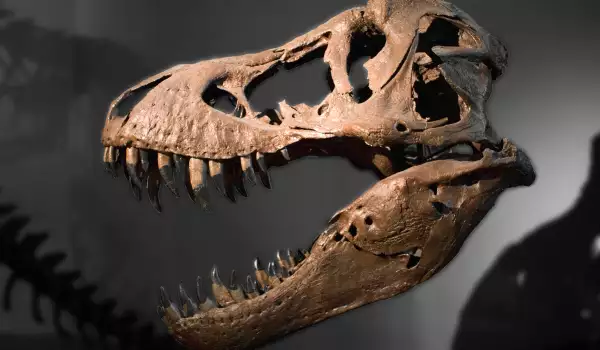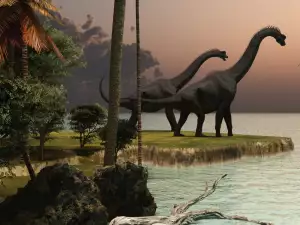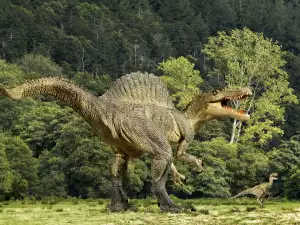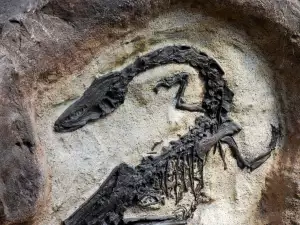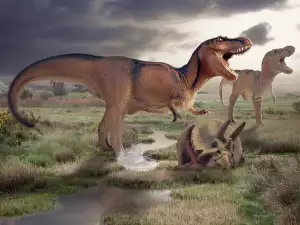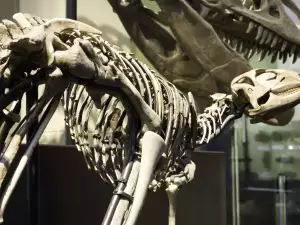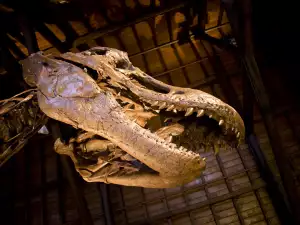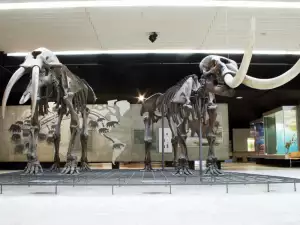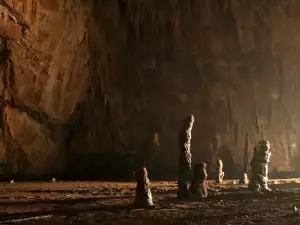One of the last dinosaurs, living in Africa before the extinction of the giant lizards 65 million years ago, was found in a phosphate mine in northern Morocco.
The paleontologists who made the discovery say they've practically won the lottery because the fossils belong to the ancient carnivore, Abelisaur (Chenanisaurus barbaricus), an extremely rare species. The dinosaur was a smaller contemporary of the North American Tyrannosaurus Rex, who ruled the Earth during the Cretaceous period.
It was as recently as last year that Dr. Nick Longrich, from the University of Bath, had studied a rare fragment of jaw bone that was found in the mines of Sidi Chennane in the Oulad Abdoun Basin in Morocco. Working together with his colleagues from Morocco, France and Spain, Dr. Longrich identified the fossil as belonging to the ancient lizard Abelisaur.
Like their T-Rex cousins, these dinosaurs were carnivores but with shorter and more blunt snouts. Their arms were also much shorter and thinner than even a T-Rex's. While Tyrannosaurs dominated North America and Asia, Abelisaurs were the apex predators in Africa, South America, India and Europe toward the end of the Cretaceous.
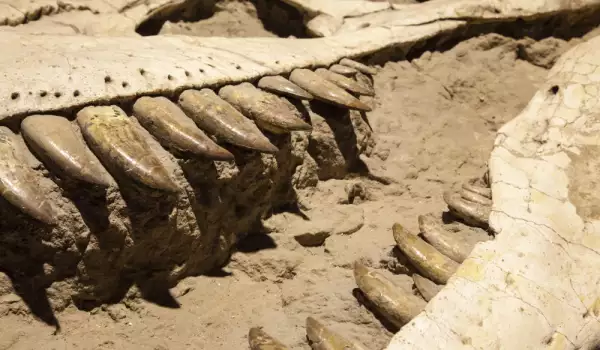
"Overall, our find is unusual. We've found fossils in rocks that had been lying at the bottom of the ocean during the Cretaceous. Normally we find the remains of whales or aquatic dinosaurs in phosphate mines.
It's an incredibly rare find - almost like winning the lottery. But the phosphate mines are so rich, it's like buying a million lottery tickets, so we actually have a chance to find rare dinosaurs like this one, " Dr. Longrich explains.
The scientists theorize that the discovered fossils belonged to one of the last dinosaurs living in Africa due to the fact that there were absolutely no other fossils of animals living during that period in that continent found in that layer of earth. They also hypothesize that Abelisaur survived for several years after the mass extinction of its contemporaries.
